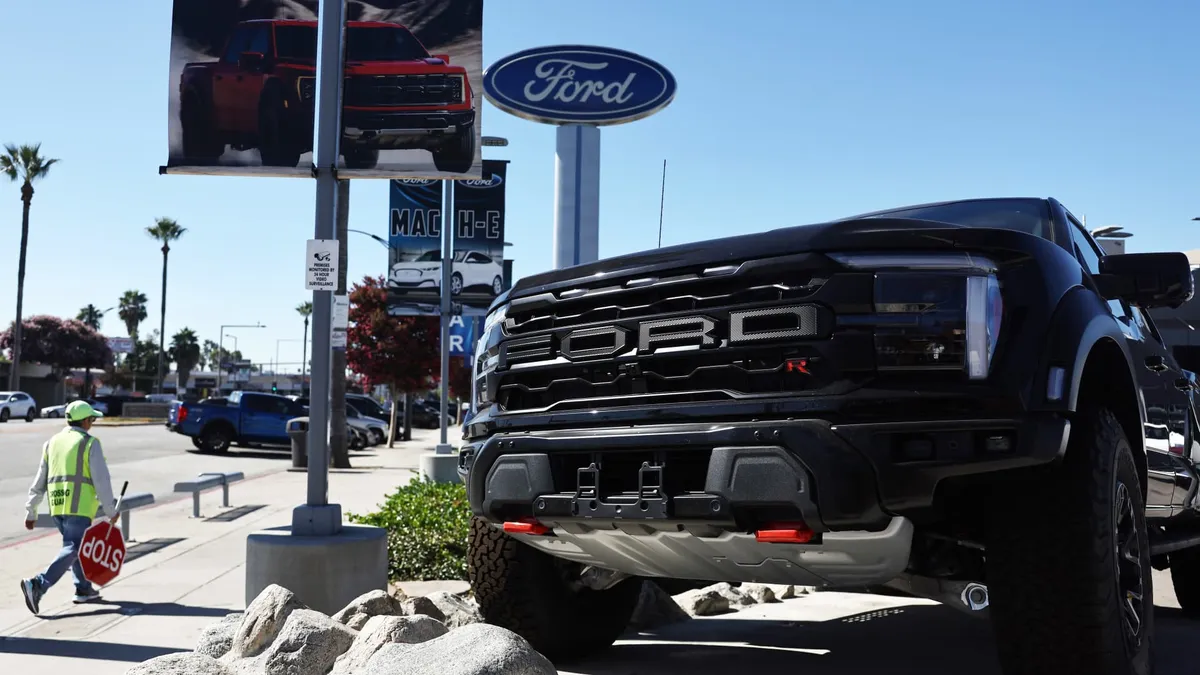
As President Donald Trump's 25% tariffs on imported vehicles were poised to take effect, Ford Motor Company swiftly implemented a strategic response. Executives at Ford recognized the need to act decisively in light of the tariffs, which have significantly impacted the automotive industry. The company launched an employee pricing initiative called From America, For America, specifically aimed at U.S. consumers. This program is designed to bolster sales during a period of heightened consumer anxiety and economic uncertainty.
The employee pricing program is a bold move, especially given the historical controversies surrounding such initiatives. Typically, these programs offer vehicles at prices close to or even below the invoice amounts, which can strain the already thin profit margins for dealers. However, Ford's leadership believes that the current economic climate justifies this approach. The company aims to highlight its significant U.S. production capabilities, which are the largest among its competitors, while simultaneously aiding consumers in their vehicle purchasing decisions.
In a statement announcing the program, Ford expressed its commitment to supporting American consumers during these uncertain times: “We understand that these are uncertain times for many Americans. Whether it's navigating the complexities of a changing economy or simply needing a reliable vehicle for your family, we want to help.” The company emphasized its extensive inventory and variety available to customers in need of new vehicles.
Ford's initiative is seen as a proactive measure to seize opportunities amid chaos, according to industry analysts. Marc McEver, a Ford dealer from Kansas City, praised the program, stating, “I absolutely love it. I think it's going to drive sales... It's truly a real deal for the customer.” By rolling out the program just hours after the tariffs began, Ford positioned itself as a leader in the automotive market during this tumultuous period.
Market analysts have noted that Ford is relatively well-positioned to handle the tariffs due to its extensive U.S. production footprint, particularly in the truck segment. As a result, Ford's stock performance has outpaced that of its rivals, experiencing only a 1.4% decline compared to a 14.2% drop for Stellantis and a 5.4% decrease for General Motors over the same period.
Following Ford's lead, other automakers are adopting similar strategies to mitigate the impact of the tariffs. Stellantis recently introduced its own employee pricing program, while Hyundai Motor announced it would refrain from raising prices for at least two months, aiming to alleviate consumer concerns. Erin Keating, an executive analyst at Cox Automotive, highlighted the significance of these moves, noting that both Ford and Stellantis remind consumers of their domestic roots. This is especially crucial given that they have inventory, including older models, to clear in preparation for new arrivals.
Keating elaborated on the strategy, stating, “Anyone who's able to beat the price out there right now, with the level of demand, is going to be able to hold on to their market share longer than others.” This sentiment reflects the competitive landscape where pricing strategies are vital for maintaining market presence.
The automotive industry is currently experiencing high demand for vehicles, particularly in light of the impending tariffs. Many consumers rushed to dealerships at the end of the month, spurred by the announcement of the tariffs, leading to considerable sales increases across the board. Cox Automotive reported that new-vehicle sales reached an impressive 1.59 million units in March, the highest volume in four years.
Hyundai Motor North America's CEO, Randy Parker, remarked on the heightened activity in the market, stating, “The last week, and including this past weekend, was by far the best weekend that I've seen in a very long time.” This surge in consumer activity reflects a desire to secure purchases before potential price increases due to tariffs.
Offering consumer incentives now may also serve as a strategic move in anticipation of a possible U.S. recession. J.P. Morgan recently raised its predictions for the likelihood of a recession by the end of the year from 40% to 60%. In this environment, Keating suggests that it is prudent for automakers to capitalize on current demand, stating, “Because the demand is there right now, it makes sense to offer consumer incentives.” This strategy not only addresses immediate market conditions but also positions companies favorably in case of an economic downturn.